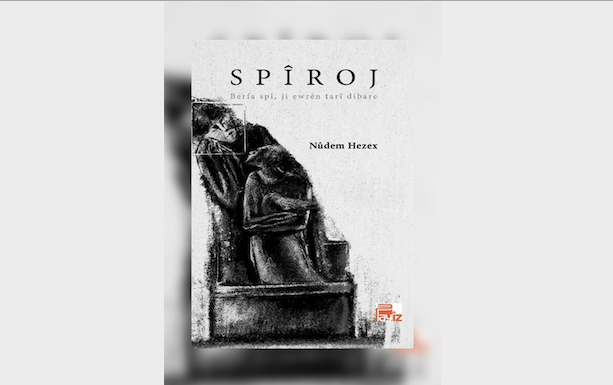Spirozh is the third novel by Nudem Hazakh. In addition to novels, Hazakh also wrote poetry. His book, Khizamok, is written in a different way, writing stories in poetry.
Spirozh begins with a scene, one so soft and nostalgic, the reader sits in front of the window and watches the snow fall. The novel begins with the repeated phrase; “It rained forty days and forty nights without stop.” The sentence is repeated with the same words but in different ways. This wordplay occurs in many places in the novel. In this way, the author has given a beautiful form to his narrative. We said the novel begins with a proposition and continues. There are many propositions in the novel; in some places, however, the author seems to leave his path halfway into another situation; as if in a hurry, he is diving into another subject. This situation is interesting and widespread throughout the book. In some parts, the contents of the two paragraphs are very different.
The novel does not consist of a single story, there are several stories in the novel, but before each story, the main characters are Te, Nuqta, and Qoytas (these three are the names of our main characters). Our character is sometimes directly in the stories and sometimes not. The character's situation sometimes becomes a mental state where our character falls into a schizophrenic state, but sometimes he is normal. But if one reads the first chapter carefully, one understands that the beginning of schizophrenic events begins there because Te goes to Asaf's shop and something happens to him there; "The gold was applied to you when you looked into her eyeballs for a few seconds, something hard fell on your neck. The colors mixed with a color in the shop and went into your stomach.” (p. 36) At the end of the novel, Te asks his brother about Asaf, and he replies: "No, no news from him since you arrested him in his shop. It is said he is killed and has been left somewhere..." (R.136) Hence, we understand that the things that happened are all imaginations, and what He tells us, the events that happen in the novel, are all the imaginations of our main character.
Our character, “Te,” is someone whose high school years were in political organizations before the 1980s. The author describes the situation in Mindy City at that time and again criticizes society through the character's ideas: “No, no, I will do nothing for these dishonest people anymore. Which one of them spoke out in my mind? They sit on their tails like cats. In prisons, they do not hear the screams of their youth, they go to coffee shops and watch sex videos of Zarin and Arazu...” (p.98) The author interrupts the character when talking about such incidents.
The novel is like a panorama of Kurdistan. Many events are described in the novel. From the fractions before the 1980s to the unknown events, the years of military rule in Turkey, the issue of minorities (Armenians and Syrians) in Kurdistan, the economic and social situation of society, and the situation of married women have been described against their will. But in some places, the author has felt compelled to explain all these issues. But again, when one looks at the overall landscape of the novel, it presents readers with a kind of geography. In addition to these events and circumstances, some legendary stories are also told. Reference is made in many places to a novel by Gorky called Mother. He also mentioned Yasar Kemal's novel Hamadok and a film by Yilmaz Goney called Keri. We know that these two novels and Yilmaz Goney's film have been popular among the revolutionary youth in recent years.
The entire novel is written based on duality; black and white, good and bad, day and night there is always a war between these two and neither side wins. The atmosphere of the novel remains the same from beginning to end because this is the state of society itself.
The language of the novel is generally colloquial. The author uses the made words in many parts. The word is not used in its known sense even in some parts. “Your soul died in the sunlight.” (p. 63) In this sentence, instead of "qemirandinê" meaning to fade and burn, ‘qewirandin’ is used, which means to die. "After this day, you were so transported." (R.96) Again, in this sentence, instead of "guhertinê" in the sense of change, "veguhestin" is used in the sense of transition. These two examples are clear, and besides these, there are similar words in some other parts.
I may be misinterpreting these words, and some others may say otherwise. However, according to the standard language of our time, the meaning of these words is not as the author uses them. In addition to these errors, there were grammatical errors in many parts. I will not point out those mistakes one by one because there are so many of them, but one cannot say that these are the writer's faults. The writer may not know grammar and does not need to know grammar, but the editor of a publishing house must know grammar and spelling. This novel is difficult to read due to many grammatical and spelling errors, but its content forces us to correct it and read it.









